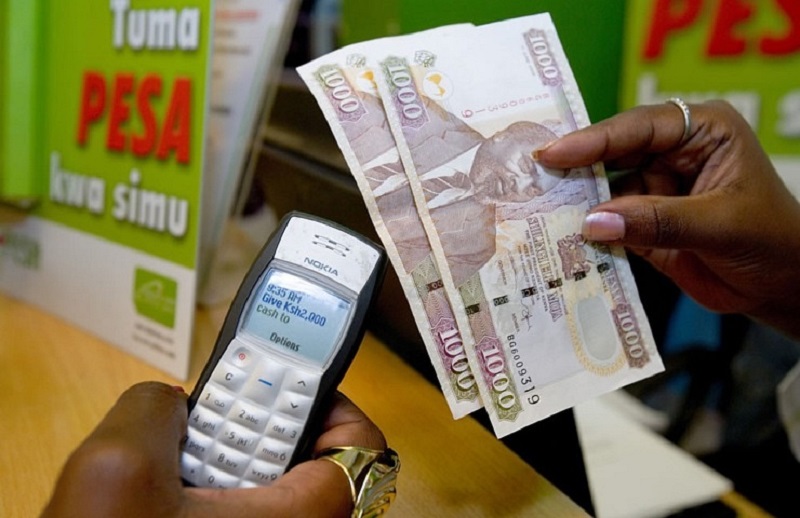- Market insights firm Stears says Kenya might not be attracting sufficient fintech investments due to the near-monopoly of tech giant Safaricom PLC.
- On average, Kenya accounted for 8 percent of fintech investments made on the continent between 2019 and 2023. At the same time, Nigeria got 39 percent, Egypt’s 16 percent, and South Africa’s 20 percent.
- Historically, Nigeria has led fintech funding on the continent, enjoying special attention from investors.
Kenya has not been prioritized by fintech investors as much in the last five years compared to other key African markets such as Nigeria, Egypt, and South Africa.
These revelations are highlighted in a report by Stears, a market research company headquartered in Nigeria that specializes in African investments.
According to the report, Kenya, on average, represented only eight percent of fintech investments in the continent between 2019 and 2023. In contrast, Nigeria accounted for 39 per cent, Egypt 16 per cent, and South Africa 20 per cent.
Kenya’s lower standing in fintech investments
The report suggests that Kenya’s growing green-tech industry might be diverting funds away from fintech, contributing to its lower standing in fintech investments. Since 2019, Kenya is reported to have captured nearly 45 per cent of all clean technology investments in Africa.
Stears adds that the country might not be attracting sufficient fintech investments due to the near-monopoly of Safaricom. This is explained by the fact that being a monopoly reduces the attractiveness of the consumer financial landscape to investors.
The report notes, “the telco controls about 97 per cent of the mobile money wallets market share, making it challenging for most fintechs to compete for the consumer market.”
Read also: African fintech revenues could grow 8 times By 2025
Safaricom’s consumer payment empire
Nevertheless, the firm predicts that fintechs and banks in the country will not soon replace Safaricom‘s well-defended consumer payment empire.
“Fintechs would then tend to focus on another critical user segment: merchants, large enterprises, and legacy financial institutions,” the report reads.
For Safaricom’s future relevance, the report states that it will mainly depend on its ability to partner with other financial institutions to deliver sophisticated financial services beyond basic payments, such as insurance, pensions, and asset management.
Fintechs are a part of micro, small, and medium-sized enterprises. The report further highlights the challenges facing them, aside from receiving less investment.
It notes that about 49 per cent of Kenyan MSMEs face barriers to accessing finance, which is higher than the average of 40 per cent in Africa.
In addition to the financial crunch, the Communications Authority of Kenya pointed out last year that these businesses also struggle with regulatory requirements, which the agency claims forces most of them to close their doors in less than a year.
According to the CA, just three to five percent of startups survive for longer than a year after they launch, and close to 80 per cent of firms frequently fail within the first year.
Read also: Fintech: The booming industry in Sub-Saharan Africa
Poor survival prospects
It further stated that the remaining 15 per cent had extremely poor survival prospects and fell into the uncertain category. Historically, Nigeria has led fintech funding on the continent, enjoying special attention from investors.
However, Nigeria’s dependence on foreign VC capital means funding has been volatile and subject to global shocks, such as COVID-19 and rising interest rates.
In the short run, asset-light startups could survive this volatility since funding rounds cover a 12-18-month runway, and this could pose longer-term sustainability risks for asset-heavy startups, such as business-to-business commerce and e-commerce.
According to the report, the country must diversify its funding sources to stay afloat.
Nigerian fintech: building from scratch
Nigeria’s last-mile financial infrastructure is only partially built (i.e., ATMs, POS, mobile apps, USSD), creating wide gaps in digital financial infrastructure in the areas of direct debits, credit scoring, lender blacklists, and national ID.
The report, therefore, says a latent opportunity exists for building basic financial products (i.e., payments and lending).
“Sophisticated services such as insurance, pensions, and wealth management won’t take off until the foundational layers are in place,” the report reads.
“Furthermore, it creates opportunities for infrastructure providers that help fintechs build products more efficiently.”
According to Briter Bridges, a business intelligence and research firm, fintechs continue to dominate the market, attracting the highest number of deals and value, as well as success stories.
In the five years to 2022, fintechs averages between 40 per cent and 60 per cent of deals across Africa “but recently there has been a wave of diversification largely driven by the launch of several sector-specific funds,” adds Briter Bridges.
As a result, areas such as health and biotech, climate and cleantech as well as e-logitsics have attracted significant financing. Some of the sector-specific funds include Villgro, Health 54, JazaRift in healthtech, the Catalyst Fund, All On, Crossboundary, and Ambo Ventures, as well as DFIs, such as BRitish Investment International, FMO, and Norfund in the cleantech and climatetech space, and Monility 54, Enza Capital, Newtown-Imperial Logitsics in logitics and supply chain, and ACUMEN, SVG Ventures, Agventures, DOB Equity, CREADEV in agritech.
Read also: African startups’ resilience tested amid a financing dip.
